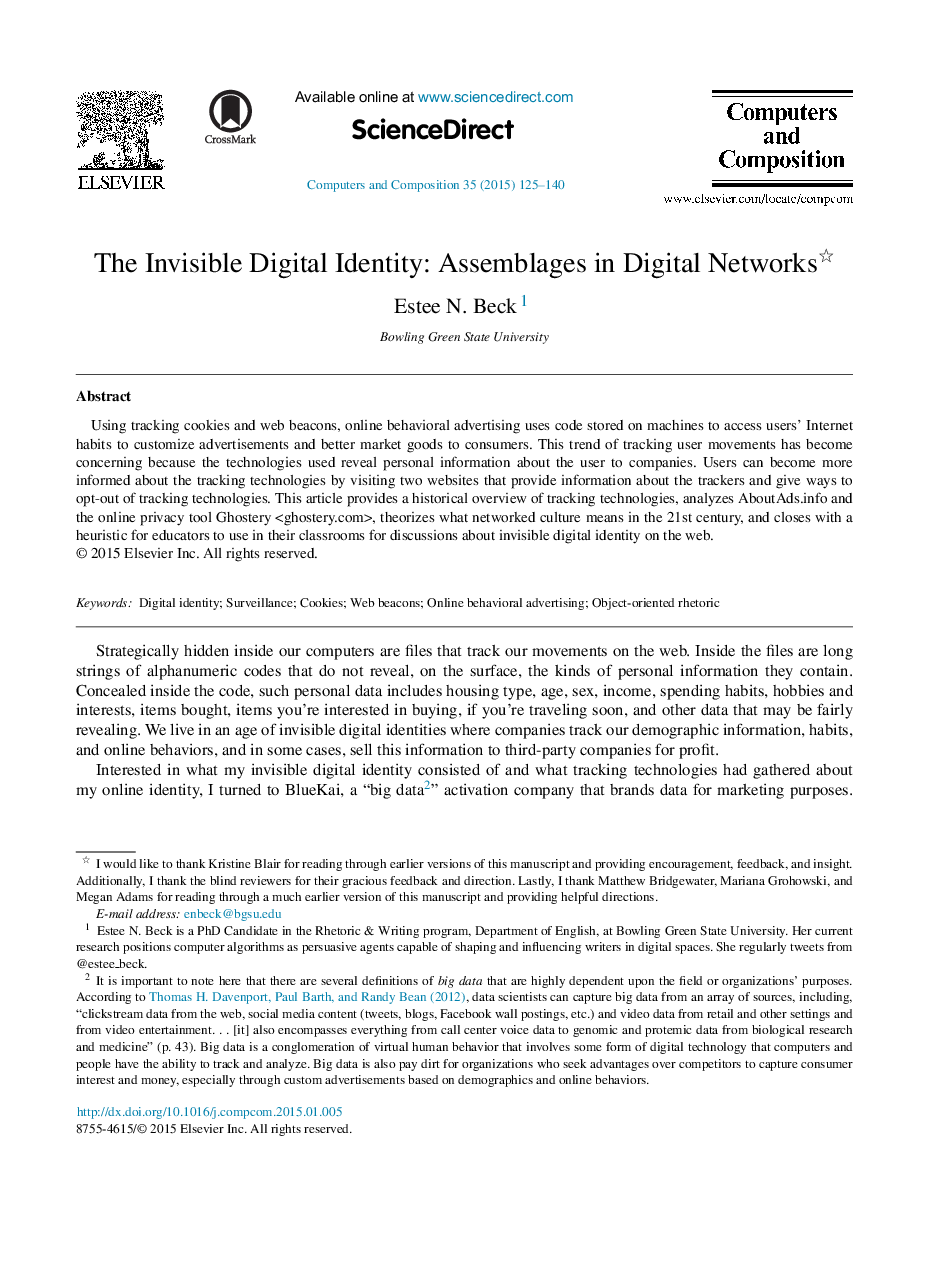| Article ID | Journal | Published Year | Pages | File Type |
|---|---|---|---|---|
| 347748 | Computers and Composition | 2015 | 16 Pages |
•Learning about an invisible digital identity can foster enhanced digital literacy.•Tracking technologies reveal information about users.•Object-oriented rhetoric helps theorize the relationship between computer algorithms and humans.
Using tracking cookies and web beacons, online behavioral advertising uses code stored on machines to access users’ Internet habits to customize advertisements and better market goods to consumers. This trend of tracking user movements has become concerning because the technologies used reveal personal information about the user to companies. Users can become more informed about the tracking technologies by visiting two websites that provide information about the trackers and give ways to opt-out of tracking technologies. This article provides a historical overview of tracking technologies, analyzes AboutAds.info and the online privacy tool Ghostery
